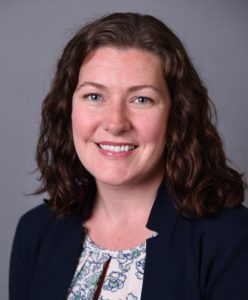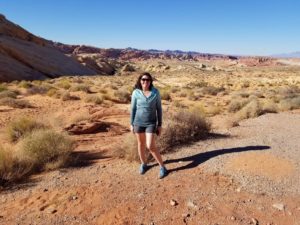Investigator Profile: Amelia Linnemann
Project: Real-time in vivo Analysis of Islet Redox Dynamics
HIRN New Investigator Award Recipient
NIH NIDDK Gateway Investigator Recipient
►Where are you from originally, and where did you go to school?
I’m originally from Detroit, MI. I did my Undergrad at University of Detroit Mercy, PhD at Wayne State University, and Postdoc at University of Wisconsin-Madison.
►What is your current position?
Assistant Professor at Indiana University School of Medicine. I’m in the Department of Pediatrics, Herman B Wells Center for Pediatric Research, and a member of the Center for Diabetes and Metabolic Diseases at IUSM.
►Why did you decide to become a researcher?
I have always loved solving problems and have been intrigued by human biology for as long as I can remember. Not having any scientists in my family, I had grown up thinking that the only way I could pursue these interests was through a career in medicine. Once I learned that I could specifically pursue research as a career, I never looked back. Being a PhD in a clinical department has the added bonus of getting to do exactly what I love while staying close to my original motivation of solving problems with direct application to human disease.
►What is the “Big Picture” of what you study?
I’m a molecular biologist by training, and am particularly interested in understanding the mechanisms that control the balance between pancreatic beta-cell survival and death in the pathogenesis of diabetes. Specifically, we study the role that autophagy plays in restoring homeostasis when this balance is disrupted. This interest in autophagy led me to study how autophagy interfaces with the antioxidant response in the islet, and much of our recent work has been focused on studying these processes and how they are linked.
►What is your favorite aspect of your research?
Right now I’m really excited about some of the methods we’ve been working to develop to study autophagy and the antioxidant response in vivo. I’m a huge proponent of studying native proteins in their endogenous niche, and appreciate the utility of being able to visualize dynamic processes such as autophagy/antioxidant response occurring in the islet in vivo in real time. We have been devoting considerable effort to the development of tools so that we can do this, and I’m excited to see (literally!) what this will allow us to discover.
► What do you hope to achieve with your research?
I hope to identify novel therapeutic targets that can prevent beta cell apoptosis under conditions that predispose an individual to diabetes. In doing this, I hope to also develop novel methods and tools to study potential targets and therapies to modulate them in a physiologically relevant system.
|
► What groups are you involved with? American Diabetes Association, Endocrine Society ►When not in the lab what are your favorite hobbies/activities? I love hiking and skiing with my family. Now that my kids are old enough to participate in both of these activities (they are 7 and 5 now), we are able to spend more time on both. I also love to travel. My husband and I traveled a lot when we were first married…from camping in Denali to backpacking through Belize and Guatemala. There’s a lot of the world we have yet to see, and have plans to continue exploring.
|
|



